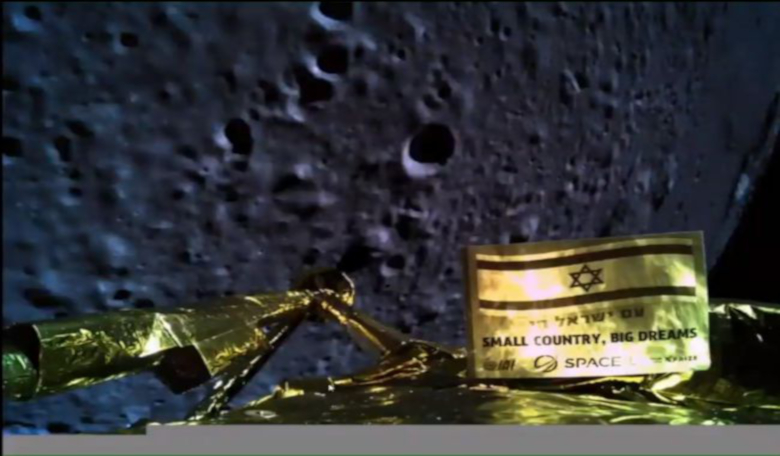It was a triumphant undertaking, but hopes for Israel’s Beresheet mission to become the first privately funded mission to land on the moon are lost, as the spacecraft has crashed onto the lunar surface after the apparent failure of its main engine.
SpaceIL and Israel Aerospace Industries (IAI) had ambitious plans of following in the footsteps of Russia, US and China, to become the fourth country to land a spacecraft on the Moon. Although unlike its contemporaries, with the cost of the project totalling around $100m (£76m), Israel’s budget was significantly lower than that of other missions made by the world’s major space agencies.
Unfortunately though, with less than 150 metres to go, Mission control lost communications with Beresheet and its attempt at a soft landing on the dusty grey regolith were thwarted.
"We had a failure in the spacecraft; we unfortunately have not managed to land successfully," Opher Doron, the general manager of IAI, said during a live broadcast from mission control. "It's a tremendous achievement up 'til now."
The initial approach was on course to proceed as expected, but then problems arose when the engine cut out. Mission control reset the spacecraft to try and kickstart the engine, which appeared to work a few seconds later, but shortly afterwards communication with the craft were severed.
"I think that the achievement of getting to where we got is really tremendous, I think we can be proud," said project originator and major backer Morris Kahn.
The aim of the mission was to conduct experiments and take lots of pictures of its surroundings, and despite its shortfall, Israel’s Prime Minister Benjamin Netanyahu was optimistic about a second chance. "If at first you don't succeed, you try again," he said, after watching Beresheet's landing attempt from SpaceIL's control centre in Yehud, Israel.
Beresheet has come a long way since its inception. Originally designed to take part in Google’s Lunar XPRIZE by the nonprofit organisation SpaceIL, together with IAI the two continued working on the 1.5 meter (5-foot-tall) probe when it became apparent they would not finish within the deadline set by Google.
As it turned out, no team managed to win the prize, however last month, the X Prize Foundation announced that SpaceIL could still win a special $1 million Moonshot award, if the craft successfully touched down on the Moon’s surface.
Despite a landing that most likely resulted in the destruction of Beresheet, minutes after the crash, X Prize founder and Executive Chairman Peter Diamandis and CEO Anousheh Ansari said SpaceIL and IAI will still receive the award despite the craft’s unfortunate ending.
"I think they managed to touch the surface of the moon, and that's what we were looking for for our Moonshot Award," Ansari said.
The low-cost nature of the project has paved the way for further low-cost lunar exploration and with a $1 million now at SpaceIL’s disposal, Beresheet 2.0 could soon be in the making.











